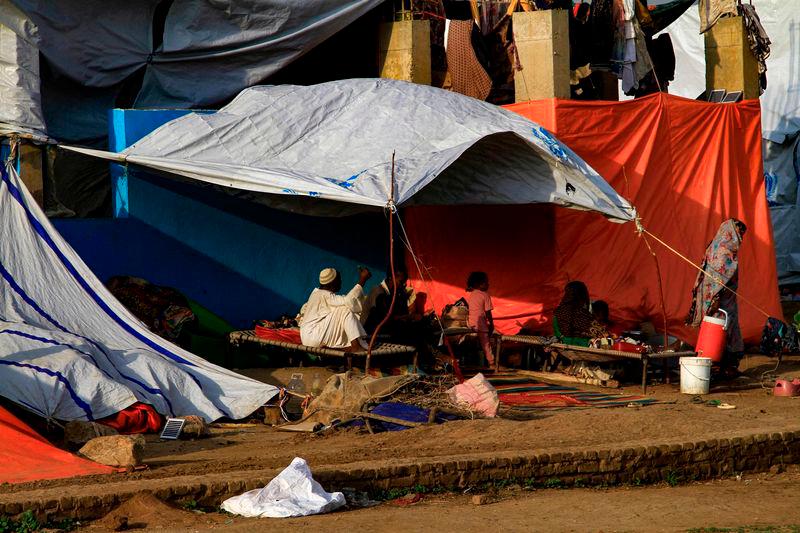WITH the ongoing conflict in Sudan, Malaysia needs to address the elephant in the room for this undiscussed crisis that is affecting the lives and human rights of the Sudanese, Petronas’s strategic importance and reshaping the narrative of the conflict that this is not just a mere fight between two generals.
It is high time for Malaysia to strengthen its ties with Sudan in its pathway towards reclaiming long-term peace and stability in the region.
The conflict in Sudan, primarily between the Sudanese Armed Forces (SAF) and the Rapid Support Forces (RSF), has led to among the worst humanitarian crises in the world apart from Yemen, with extreme violence, displacement and a looming genocide.
Questions arise as to who is the group being persecuted in this “domestic conflict”.
In a simplified answer, it would be the army formed primarily of Arab tribes attacking the non-Arab tribes such as Fur, Zaghawa and Masalit, but the bottom line goes deeper than this generalisation.
To provide a context, Sudan was engulfed in a devastating conflict in April 2023 between the RSF, led by General Mohamed Hamdan Dagalo, and the SAF, commanded by General Abdel Fattah al-Burhan.
The war erupted when the SAF tried to forcibly integrate the RSF, which saw this as a threat to its autonomy after gaining military recognition in 2017, with support from ousted President Omar Hassan al-Bashir.
The RSF’s rapid advance captured key regions such as Khartoum, Gezira, Darfur, and Kordofan.
The consequences of the conflict have been dire and far-reaching.
It has led to widespread devastation, with infrastructure heavily damaged and essential services collapsing.
Civilian casualties have been severe, with more than 18,800 people killed and over 33,000 injured since the conflict reignited in April 2023.
The humanitarian crisis has worsened dramatically with over 10 million people fleeing from their homes and more than five million children suffering malnutrition and famine.
Over two million of these displaced individuals have crossed into neighbouring countries, seeking refuge from the escalating violence.
The ongoing violence continues to destabilise Sudan, leaving the nation grappling with profound uncertainty and a dire need for international support and intervention.
This war disrupts regional stability in Northeast Africa, impacting global trade routes, especially through the Red Sea, which is vital for Malaysia’s international trade and commerce.
Not to forget, our state-owned oil company Petronas, holds a 30% stake in the Greater Nile Petroleum Operating Company, making it one of the most substantial foreign investments in Sudan.
As Malaysia relies heavily on international trade, disruptions mean increased costs, and delays in goods and energy supplies.
In April 2023, the operation of the Malaysian Embassy in Sudan was halted temporarily as all registered Malaysians in Sudan were brought home safe and sound.
However, the ongoing war in Sudan also raises moral and ethical considerations among Malaysians, who have a significant Muslim population, regarding ummatic solidarity with fellow Muslims facing oppression.
Malaysia is now known to the world for its unequivocal support and solidarity with the Palestinian people.
Consequently, the Muslim world is holding it accountable for defending the fate of the Sudanese.
It is past time for Malaysia to seize this opportunity to create a strategic framework to support peacekeeping efforts and rebuild Sudan, focusing on economic cooperation in Islamic finance and halal industries.
This situation presents a need for Malaysia to develop a clear policy for engaging in conflict-affected Muslim countries in which its framework will be beneficial for other clashes affecting the Muslim world.
We must urgently strengthen humanitarian cooperation by speeding up the delivery of aid and assistance, reviving Sudanese tourism, and leveraging Malaysia’s Islamic finance experience to rebuild Sudan’s economy.
To meet the challenges in Sudan’s ongoing war, it is recommended to include establishing the “Sudan Health and Education Revitalisation Project” and enhancing Sudan’s financial and service sectors through Malaysian expertise.
The framework for rebuilding a health system in war-torn areas can be done through reorienting service delivery according to location and security level, redefining the essential health service to meet new demands, building capacity for emergency response and, most importantly, reskilling and empowering the health workforce, and coordinating actors to create a sustainable and resilient health system.
For example, Malaysia, with its advanced Islamic finance system, could help Sudan by developing a value-based plan for economic reforms and regional cooperation to strengthen economic resilience.
This approach would cover all aspects from protecting the environment and ensuring social fairness to maintaining economic stability and encouraging technological progress, recognising that these areas are all interconnected.
These initiatives aim to secure mutual prosperity and sustainable development for both nations while positioning Malaysia as a leader in global peace and development efforts.
As Sudan navigates through its most challenging period, Malaysia has the opportunity to lead with high impact.
By seizing this moment to drive peace-building and socioeconomic development, Malaysia can help shape a resilient future for both nations, where mutual prosperity is not just a possibility, but a reality forged through steadfast cooperation.
Nabiela Ismail is a research and advocacy analyst (foreign affairs) and Humaira Shafril is a research assistant at Bait Al Amanah.
Comments: letters@thesundaily.com









